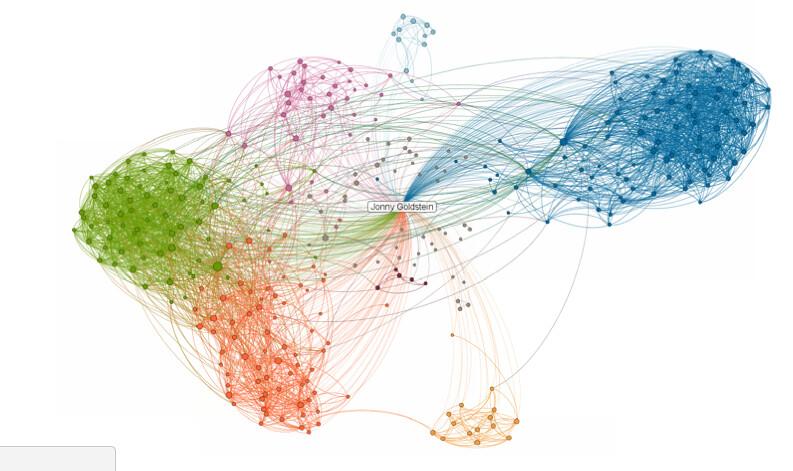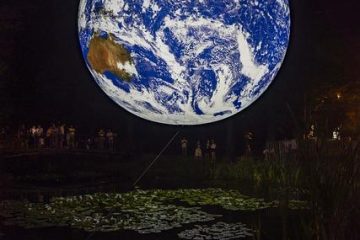Have you ever looked up at the stars and wondered about the intricate interconnectedness of our planet? The Gaia Hypothesis delves into this very question, offering a unique perspective on Earth as a living, self-regulating organism. In this article, we will explore the meaning behind the Gaia Hypothesis, its origins, and how it has reshaped our understanding of the world we call home. Join us on a journey of discovery as we unravel the mysteries of this fascinating theory that challenges the way we perceive our planet and our place within it.
Table of Contents
- – Unveiling the Essence of the Gaia Hypothesis
- – Understanding the Interconnectedness of Gaia and Ecology
- – Exploring the Implications of the Gaia Hypothesis
- – Implementing Gaia-Inspired Practices for Sustainable Living
- Q&A
- The Conclusion
– Unveiling the Essence of the Gaia Hypothesis
Lurking beneath the surface of ecological theories lies the Gaia hypothesis, a concept that unveils the interconnectedness between living organisms and their environment. In a harmonious dance of balance, this hypothesis suggests that the Earth operates as a single, self-regulating system where life not only adapts to the environment but actively contributes to shaping it.
<p>Within the <b>Gaia hypothesis</b>, the Earth is perceived as a living organism in itself, with intricate feedback mechanisms that maintain optimal conditions for life to flourish. This holistic view challenges traditional perspectives by highlighting the intricate web of interactions between species, climate, and geological processes, emphasizing the Earth as a dynamic, interdependent entity.</p>
– Understanding the Interconnectedness of Gaia and Ecology
In the intricate tapestry of nature, the Gaia hypothesis introduces a profound concept—seeing the Earth as a single living organism where all components interact harmoniously. This interconnectedness extends beyond the physical realm, delving into the intricate balance between ecosystems, species, and environmental processes.
Embracing the Gaia perspective sheds light on the delicate dance between Gaia and ecology, emphasizing how each element influences and sustains the whole. By recognizing and respecting this interconnected web of life, we can cultivate a deeper appreciation for our planet and strive to protect and nurture its ecosystems for generations to come. Let’s cherish the symbiotic relationship between Gaia and ecology, fostering a world where harmony and balance thrive.
– Exploring the Implications of the Gaia Hypothesis
Embark on a journey into the realm of the Gaia hypothesis, a concept that transcends traditional views of Earth as a mere planet. This intriguing hypothesis suggests that Earth operates as a self-regulating organism, where living and non-living components interact to maintain an optimal environment for life to thrive.
By delving into the implications of the Gaia hypothesis, we uncover the interconnectedness of all life forms on Earth and the delicate balance that sustains our biosphere. Through **mutual feedback mechanisms** between organisms and their environment, this hypothesis challenges us to reconsider our role in preserving the intricate web of life that surrounds us.

– Implementing Gaia-Inspired Practices for Sustainable Living
Living in harmony with the Earth involves embracing Gaia-inspired practices that prioritize sustainability and interconnectedness. By adopting these principles, we can contribute to the well-being of our planet and future generations. One way to embody the Gaia hypothesis is by cultivating a deep respect for nature and recognizing that all living beings are interconnected.
Here are some practical ways to implement Gaia-inspired practices for sustainable living:
- Reduce, Reuse, Recycle: Embrace the mantra of sustainability by minimizing waste and conserving resources.
- Grow Your Own Food: Cultivating your own fruits and vegetables not only reduces carbon footprint but also connects you to the Earth’s natural cycles.
Incorporating these practices into our daily lives can nurture a deeper connection to our environment and promote a more sustainable future for all living beings on this beautiful planet we call home.
Q&A
Q: What is the Gaia Hypothesis and what does it propose?
A: The Gaia Hypothesis, proposed by scientist James Lovelock in the 1970s, suggests that the Earth functions as a self-regulating organism. It proposes that the living and non-living components of the planet interact in a way that maintains the conditions necessary for life to thrive.
Q: How does the Gaia Hypothesis differ from traditional views of the Earth?
A: Unlike traditional views that see Earth as a passive system where life simply exists, the Gaia Hypothesis presents Earth as a dynamic entity with life playing an active role in shaping its environment.
Q: What are some examples of Gaia Hypothesis in action?
A: Examples of the Gaia Hypothesis in action include the regulation of the Earth’s temperature through processes like the carbon cycle and the role of organisms in stabilizing the composition of the atmosphere.
Q: How does the Gaia Hypothesis impact our understanding of environmental issues?
A: The Gaia Hypothesis encourages us to see the Earth as a complex, interconnected system where changes in one part can have widespread effects. It highlights the importance of preserving biodiversity and maintaining a balance between human activities and the environment.
Q: What are some criticisms of the Gaia Hypothesis?
A: Critics of the Gaia Hypothesis argue that it anthropomorphizes the Earth and oversimplifies the complexities of ecological interactions. Some also question the extent to which Earth can be considered a self-regulating organism.
Q: How has the Gaia Hypothesis influenced scientific thought and environmental activism?
A: The Gaia Hypothesis has sparked debates about the interplay between life and the environment, influencing fields such as ecology and planetary science. It has also inspired environmental activists to advocate for a more holistic approach to sustainability and conservation efforts.
The Conclusion
As we delve into the fascinating realms of the Gaia Hypothesis, we uncover a profound connection between life and the Earth itself. This intricate theory challenges our perception of the planet as a mere backdrop to existence, inviting us to see it as a dynamic and interconnected entity. By exploring the symbiotic relationship between all living beings and their environment, we not only gain insights into the intricate web of life but also deepen our appreciation for the beauty and complexity of our planet. Let these insights fuel your curiosity and inspire you to see the world around you in a new light. Embrace the Gaia Hypothesis, and embark on a journey of discovery where Earth is not just a place we inhabit but a living, breathing entity we are undeniably intertwined with.



0 Comments